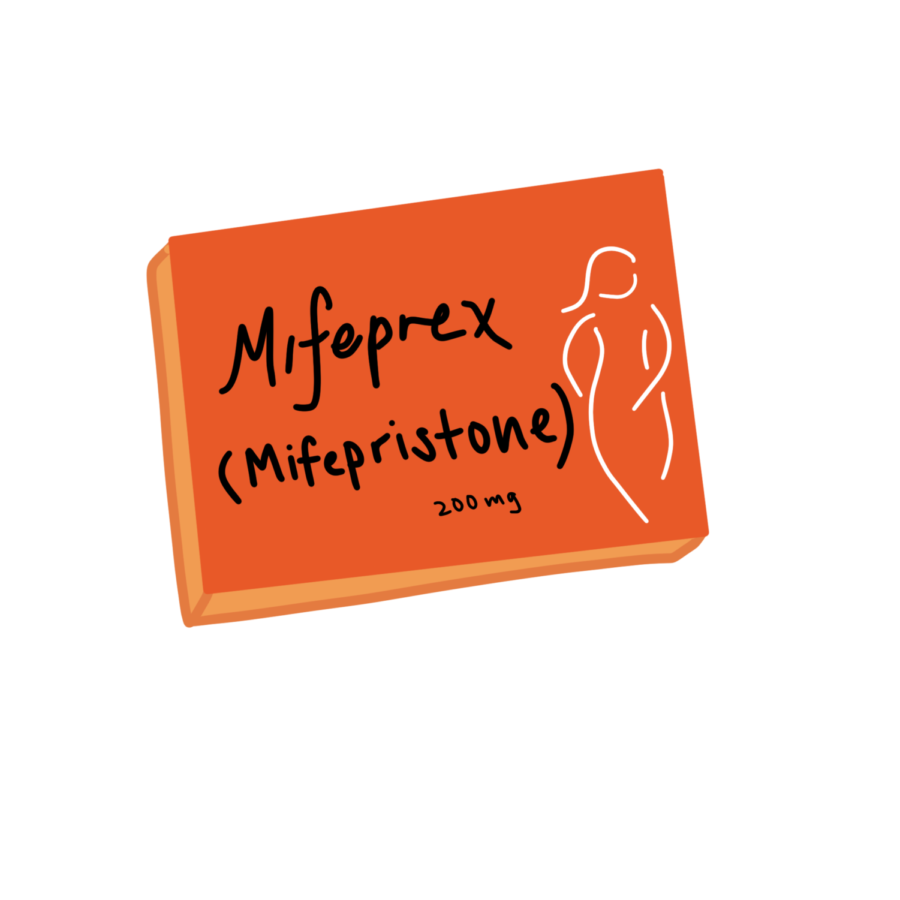Controversy erupts following Texas ban of abortion pill
An abortion pill, mifepristone, was outlawed by a federal judge in Texas.
May 10, 2023
A federal judge in Texas outlawed mifepristone, a widely used abortion pill, on April 7. Soon after, however, a District Court in Washington D.C. blocked the Federal Food and Drug Administration from suspending approval of the pill in 18 states.
These conflicting rulings have impacted the Supreme Court’s stance on the issue. As a result, the drug is available in the United States with a prescription on April 21.
The ban on mifepristone would heavily affect abortion clinics throughout the nation, one of the first obstacles to abortions from a federal level. However, the Supreme Court ruling has preserved the drug’s legality for now.
In what has been a long lasting standoff over the right to an abortion, many Americans are outraged at the possibility of further restricting abortion rights through the mifepristone ban.
The Supreme Court has been controversial in the last few years in regards to the ongoing discussion over the right to choose. After issuing a ruling in Dobbs v. Jackson Women’s Health Organization which overturned the precedent set in Roe v. Wade, the Supreme Court left abortion laws up to the jurisdiction of the states. Since the decision in Dobbs, 13 states have placed full bans on abortions.
This trend is an effect of the 2016 election when former president Donald Trump was elected and has since placed multiple conservative judges on the Supreme Court.
In 2017, Trump also nominated Matthew Kacsmaryk to serve as district judge on the District Court for the Northern District of Texas. Judge Kacsmaryk was one of the judges who issued the latest decision to ban mifepristone in Texas. Judge Kacsmaryk has been highly scrutinized for his background and financial activities since he issued this decision.
To midwife and women’s health specialist Gwen Riddell in California, this decision is another attack on the right to choose for women in the United States. Riddell believes the right to these medications is vital.
“So why is it that a 17 year old is able to finish high school? So that [a] 35 year old mom who has three children is able to continue going to her job and paying for childcare, so that a person who was sexually assaulted and became pregnant from that assault was able to have an abortion freely,” Riddell said.
Sophomore Vihaan Rathi thought the latest order by the high court was a response to the backlash it earned in the Dobbs ruling. “I think because of how extreme the medication ban was and taking into account the backlash that the [Supreme Court] faced after Dobbs, I think they were more or less forced to at least act apolitical and preserve access to the abortion drug,” Rathi said.
Many also see optimism for abortion rights going forward. “I think there’s hope from [generation Z]. And, you know, the voters coming up are not that conservative. I think that many, many people in this coming generation are very pro-choice. And so I say, elections have consequences, and this is all a consequence of the 2016 election. And so I feel like the pendulum has swung, it’s going to swing back,” Riddell said.




